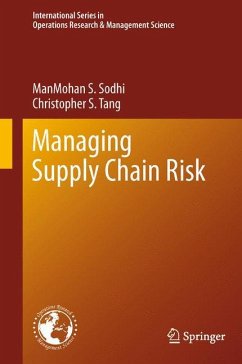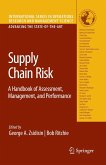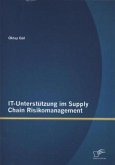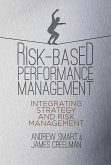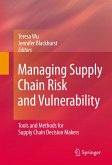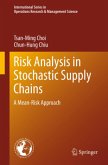"Supply Chain Risk Management is an issue that many companies face and yet few companies know how to deal with it in a systematic and pragmatic manner. While avoiding and reducing supply chain risks are certainly preferable, developing ways to restore and stabilize supply chain operations rapidly after a major disruption is critical for managing global supply chains. Sodhi and Tang present important concepts, frameworks, strategies, and analyses that are essential for managing supply chain risks. Not only does this book suggest some practical ways to work with different partners to manage the risks that are present in a global supply chain, it creates a framework that would enable practitioners to engage researchers to work on this important area."
-Thomas A. Debrowski, Executive Vice President, Worldwide Operations, Mattel, Inc.
"When a firm outsources its operations to external suppliers, the firm is vulnerable to major and rare disruptions that can occur at any link in the global supply chain. Because these disruptions rarely occur, few firms take commensurable actions to identify, assess, mitigate and respond to various types of supply chain risks. By introducing frameworks and concepts along with several case studies and a review of academic literature, Sodhi and Tang treat this important subject with practical relevance and academic rigor. This book will bring practitioners and researchers to develop effective and efficient ways to manage supply chain risks."
-Marshall L. Fisher, UPS Professor, Professor of Operations and Information Management and Co-Director of Fishman-Davidson Center for Service and Operations Management, The Wharton School, University of Pennsylvania
"This book ties observations in practice to methodologies and research. The rich case examples motivated the approaches and methodologies used to mitigate risks, and in the course of doing so, Sodhi and Tang provided insights on existing and new research opportunities. As a result, this book is highly relevant to both practitioners and academics. Also, the book is also written with management lessons on how risks can be mitigated, and how risks can be contained once disruptions have occurred. As such, it is also a book for management to gain insights and to develop management skills."
-Hau L. Lee, Thoma Professor of Operations, Information and Technology and Director of the Stanford Global Supply Chain Management Forum, Graduate School of Business, Stanford University
"As companies have extended their supply chains globally and as the face increasing resource issues, they face a number of new risk challenges. While there are various case studies written about supply chain risks, this book gives a comprehensive treatment of the subject with clarity. The concepts and frameworks developed by Sodhi and Tang in this book would create awareness of this important and yet not well understood subject, and strategies described in this book would stimulate practitioners to develop a holistic approach for identifying, assessing, mitigating, and responding to different types of supply chain risks."
-Nick Wildgoose, Global Supply Chain Proposition Manager, Zurich Insurance?
Hinweis: Dieser Artikel kann nur an eine deutsche Lieferadresse ausgeliefert werden.
-Thomas A. Debrowski, Executive Vice President, Worldwide Operations, Mattel, Inc.
"When a firm outsources its operations to external suppliers, the firm is vulnerable to major and rare disruptions that can occur at any link in the global supply chain. Because these disruptions rarely occur, few firms take commensurable actions to identify, assess, mitigate and respond to various types of supply chain risks. By introducing frameworks and concepts along with several case studies and a review of academic literature, Sodhi and Tang treat this important subject with practical relevance and academic rigor. This book will bring practitioners and researchers to develop effective and efficient ways to manage supply chain risks."
-Marshall L. Fisher, UPS Professor, Professor of Operations and Information Management and Co-Director of Fishman-Davidson Center for Service and Operations Management, The Wharton School, University of Pennsylvania
"This book ties observations in practice to methodologies and research. The rich case examples motivated the approaches and methodologies used to mitigate risks, and in the course of doing so, Sodhi and Tang provided insights on existing and new research opportunities. As a result, this book is highly relevant to both practitioners and academics. Also, the book is also written with management lessons on how risks can be mitigated, and how risks can be contained once disruptions have occurred. As such, it is also a book for management to gain insights and to develop management skills."
-Hau L. Lee, Thoma Professor of Operations, Information and Technology and Director of the Stanford Global Supply Chain Management Forum, Graduate School of Business, Stanford University
"As companies have extended their supply chains globally and as the face increasing resource issues, they face a number of new risk challenges. While there are various case studies written about supply chain risks, this book gives a comprehensive treatment of the subject with clarity. The concepts and frameworks developed by Sodhi and Tang in this book would create awareness of this important and yet not well understood subject, and strategies described in this book would stimulate practitioners to develop a holistic approach for identifying, assessing, mitigating, and responding to different types of supply chain risks."
-Nick Wildgoose, Global Supply Chain Proposition Manager, Zurich Insurance?
Hinweis: Dieser Artikel kann nur an eine deutsche Lieferadresse ausgeliefert werden.
From the reviews:
"This humble, balanced, and structured book is a pleasure to read. ... The authors clearly explain both the outline and the concepts stated within that outline. They accompany each methodology by an illustration, a practical example, and a discussion. ... I would advise each supply chain manager and researcher to add this book to his (her) bookshelf." (Tessa Möller, Interfaces, Vol. 44 (1), January-February, 2014)
"This humble, balanced, and structured book is a pleasure to read. ... The authors clearly explain both the outline and the concepts stated within that outline. They accompany each methodology by an illustration, a practical example, and a discussion. ... I would advise each supply chain manager and researcher to add this book to his (her) bookshelf." (Tessa Möller, Interfaces, Vol. 44 (1), January-February, 2014)

